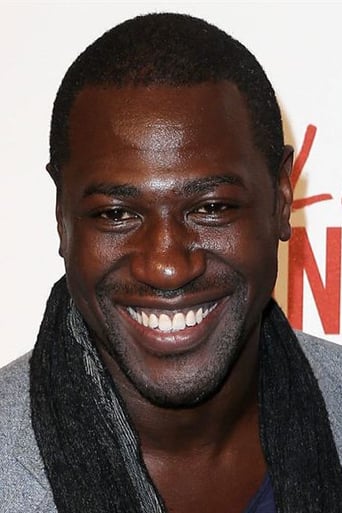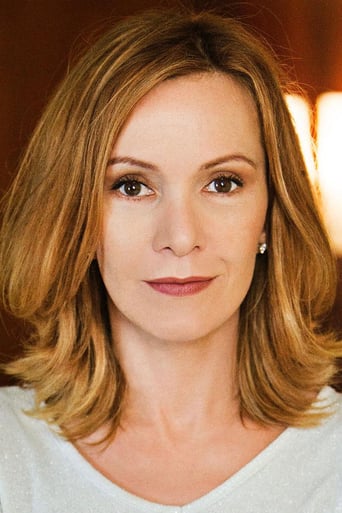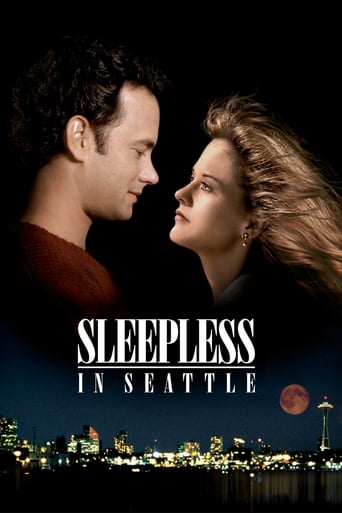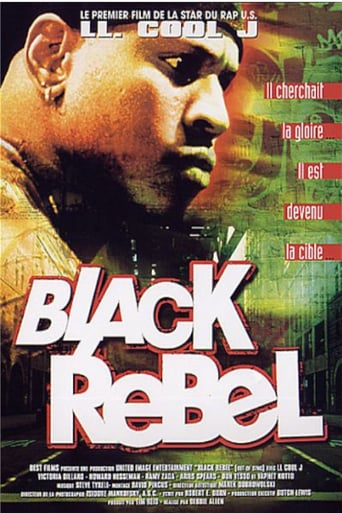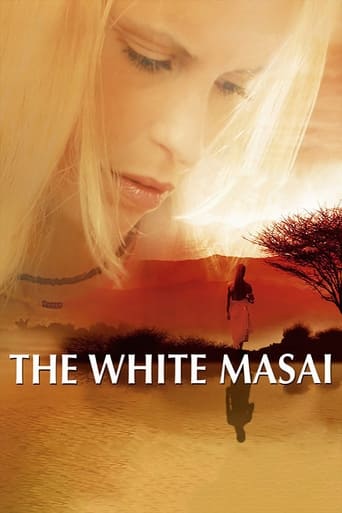
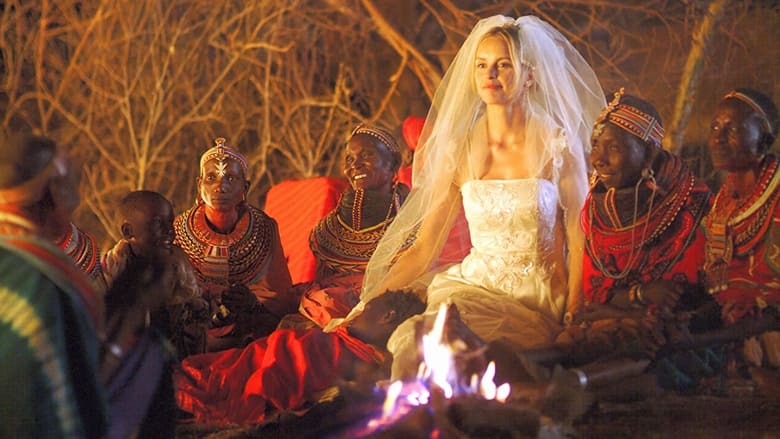
The White Masai (2005)
A girl, Carola, whose vacation in Kenya takes an interesting turn when she becomes infatuated with a Masai. Carola decides to leave her boyfriend to stay with her lover. There, she has to adapt to the Masai's way of life and get used to their food which includes milk mixed with blood. She also has to face her husband's attitude towards women and what he expects from a wife. Nonetheless, Carola is welcomed warmly into the tribe she has chosen to join.
Watch Trailer
Cast


Similar titles
Reviews
This is a really well filmed movie. The acting ranges from average to very authentic. I wonder how they managed to film some of the settings and how much the Massai way of life was disturbed by the film crew's visits. In any case, on a technical level, it is well produced. The message is the problem of this film. Ostensibly, the film is a romance failed between western, civilized, white Swiss woman and eastern, uncivilized, black African man. They start off passionate, but soon come the inevitable cultural clashes. In every circumstance, the white woman reacts as a westerner would (and not surprising - how else should one be expected to act?). What IS surprising is that we see the Massai husband attempt in every circumstance to accept or even adopt the ways of his wife. He fails almost every time, but, man, did she find an understanding man to marry. He even goes so far as to cut off his precious warrior hair (a symbol of his manhood) so that she will be more pleased with him. The fact that he loses patience, lashes out, or accuses her of infidelity should come as natural, as his ignorant wife steps over his cultural taboos repeatedly. But he manages to stifle letting his anger out fully because he loves her. Even his tribe accepts this woman, who arrogantly assumes her ways upon them. Now I would have had no problem with these developments had the movie been completely neutral or sided with the Massai more (clearly the Massai were far more patient with her than she with them). But this film seems to side with the white woman and subtly justify her decision to leave country and take their daughter with her, leaving her husband disgraced and now childless. We are asked to sympathize with her, and while we should, we are not asked to sympathize with the Massai. What a wasted opportunity. The film gets 4 points for technical prowess, but none more because of the story!
Most viewers see this story as an inter-cultural and inter-racial issue and point out what characters could have done instead of what they did. But I saw that this movie tells a lot about relationships in general and you certainly don't have to like the characters to enjoy the story.Carola is annoying in her expectation that everything is always going to be the way she wants it. Also the title "White Massai" is misleading, since this woman does close to nothing to become a part of the Massai community. Even travel journalists sometimes put clay in their hair or sit down with the village women, but Carola was to busy creating her own world there.Lemaian is not only a Samburu warrior, first of all he is a huge male ego walking on two legs. With Carola's stubbornness and impractical ambitions the clash of civilizations was largely the clash of opposite sex and the clash of two egos.As we observe the development of their relationship we are reminded of some important aspects of sex, such as foreplay, female orgasm and cuddling after, to which some men in many cultures may not pay enough attention. Also, thanks to affection in the relationship Lemaian shows that he can be a caring and clever man, it is a beautiful lesson to be learned. Sadly, there are also certain contradictions in this character, he is a respected warrior and goes to town more often than others, yet he seems very naive and weak when confronting men from his family tribe. It is really annoying.But as I said, you don't have to like nor understand the characters to enjoy the movie. It is really well shot and the landscapes are stunning. Still it doesn't reveal that much about Africa as it does about abusive men and compulsive women. They failed not only because of the cultural gap, but mainly because of their egos.
Having just finished reading The White Masai in paperback, I waited in anticipation of getting the DVD from the local library, albeit with some trepidations, knowing that film adaptations of books don't always follow true to the written work. That is certainly the case with this one. Firstly, why the change of names of the characters in the book - from Corinne to Carola, Lketinga to Lemalian, Napirai to Sarai, etc? Everyone who has read the book will know the characters anyway no matter what their names are. Also, there seem to be some vital points in the book that were not depicted in the movie. The novel extensively describes how Corinne's physical health was greatly affected from having to live in near-primitive conditions with nil in basic amenities like proper drinking water and sanitation, tropical diseases and inadequate diet. Doesn't it seem incongruous that in the movie this doesn't seem to be the case with Carola - she emerges from the hut cum loveshack each day fresh as a newly-budded rose, skin aglowing & hair shining like gold in the morning sun? She merely appears to be in a reality TV tour group rather than having assimilated herself into the tribe. It would certainly have helped to have a Westernized educated Samburu character to help bridge the (communication) gap between Carola and Lemalian, which in the book would have been James (Lketinga's brother). That said, the bottom line that both book and film raise is: can two people of contrastingly different cultures live together in harmony and genuine affection? How much is one prepared to sacrifice in the name of love? The film is aware of all these questions but does not give a definite answer - it all remains up to the viewer to put himself/herself in the heroine's shoes and ask "would I have done the same as Carola? Would I give up all the creature comforts of life that I've known and been accustomed to and live in woop-woop with a man I hardly know from a totally alien background?" While the movie does portray non-whites in a more positive light than other movies with a similar theme, it continues the long history of inequivocal relations between whites and blacks in general and it concludes that the Africans have been and always will be culturally inferior to whites. Even though the film is sympathetic to the Samburu people and evidently shows how naive and clueless as far as cultural sensitivities go with Carola, it's telling her side of the story. It would be very interesting indeed if the movie would be (re)made from Lemalian's point of view, but alas that is just a pipe dream.
The White Masai is a very handsome production that showcases excellent cinematography by Martin Langer and some fine performances by Nina Hoss and Katja Flint as two European women trying to cope with life in Kenya. Carola knows fairly early on that she has gotten into a situation that will call on all her emotional resources if she is to survive. Nina Hoss conveys her sudden attraction to Lemalian, followed by bruising experiences with female circumcision, a woman called bewitched who gives birth at the side of the road, a crooked "mini-chief" who craftily skims money off the receipts at her store, and other trials. She seeks help from Pater Bernardo the missionary, very skillfully played by Antonio Prester.The story is engrossing but it is true, as another commenter noted, that you're never in doubt about the next plot turn. This film should be seen by all those who enjoyed The African Queen and Out of Africa; it has the same romantic appeal as those classics.



